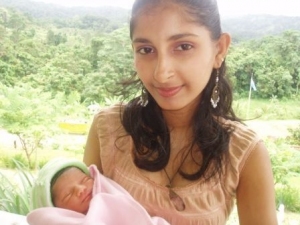
Guest Blog Post by Zen Loveall
False beliefs: I use to think that porn, strip clubs, and affairs were all O.K. I thought this was just part of being a guy. I use to think that my wife’s inability to satisfy me sexually was due to a problem with her. I am not hurting anyone. Women in porn and strip clubs want to do what they are doing and I am helping my mistresses by giving them the sex that they need. TV, movies, bars, clubs, advertising, magazines, and the Internet all fully supported these false beliefs.
What was my reality? I was using sex and fantasy for the wrong things and so too much would never be enough. Regular porn, and small amounts use to be O.K., but over time I needed more and more. Eventually, I was a walking dead man that lost total control of his sexual desires, living a fantasy life in my head, destroying my marriage, causing deep harm to the women that came into my life, all while supporting an industry that destroys women and children.
I was afraid of feeling my feelings and I had a lot of bad feelings. I did not understand that you can’t stop the bad feelings without stopping the good ones. I used the objectification of women and fantasy as an escape. Eventually I had no feelings…I was like a walking dead man. I wanted intimacy but bought into the myth that sex with a woman was intimacy. Sure it is a form of physical intimacy, but it is not real intimacy. You cannot have true intimacy with an object and that is what women had become for me. When I was out with my wife or friends I would just check out all the women in the room and spin fantasies in my mind around how these “objects” could satisfy me.
After I started to come out of my delusion, it took me years to turn this around. For over 15 years in my marriage, I made my wife feel less than and defective because she could not meet my insatiable sexual needs. I will have to spend the rest of my life trying to make up for that crime. I spent years in recovery groups around sex and I always use to wonder why don’t I see more strippers and prostitutes in recovery? The book “Renting Lacy” helped me to understand this. Very few of these young women make it into recovery because most of them die. The movie “The Whistleblower” also helped me to understand what I was contributing to.
When I read the book “Renting Lacy” and contemplated all the women and children suffering from this I cried and cried. I can never make that right, but I can support groups like Shared Hope and The Defenders and continue to come out of my delusion, learn to respect women as people, and continue to learn to be present and truly alive.
– Zen Loveall
 2006, and President Nailatikau now enforce a military government, restrict freedom of speech, and are delaying any elections until 2014 at the earliest. Despite the precarious political situation, according to the US State Department’s 2010 Trafficking in Persons (TIP) Report, a hopeful amount of progress in the fight against sex trafficking occurred this past year.
2006, and President Nailatikau now enforce a military government, restrict freedom of speech, and are delaying any elections until 2014 at the earliest. Despite the precarious political situation, according to the US State Department’s 2010 Trafficking in Persons (TIP) Report, a hopeful amount of progress in the fight against sex trafficking occurred this past year. Shared Hope International is presently active in Fiji through the provision of resources to fund a
Shared Hope International is presently active in Fiji through the provision of resources to fund a 





